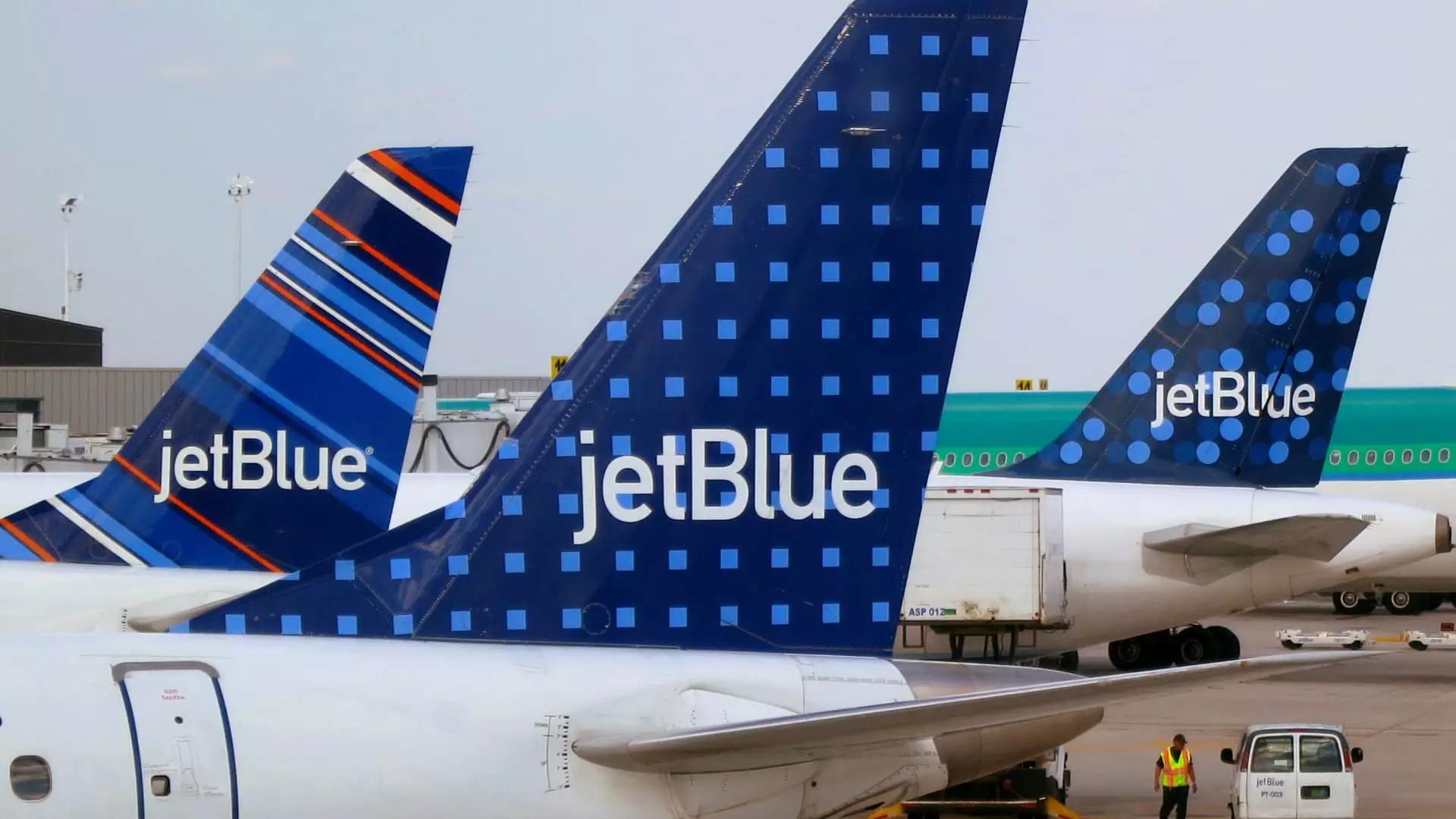The recent $2 million fine imposed on JetBlue Airways by the Department of Transportation (DOT) marks a significant milestone in the airline industry regarding accountability for flight delays. This unprecedented action serves as a stern warning not only to JetBlue but to the entire aviation sector, emphasizing the need for realistic flight scheduling and transparency regarding delays.
According to DOT officials, JetBlue faced penalties for consistently failing to meet its flight schedule on several busy routes between June 2022 and November 2023. Specifically, the airline’s chronic delays were primarily noted on four key routes originating from its hub at John F. Kennedy International Airport to destinations such as Raleigh-Durham (North Carolina), Orlando (Florida), and Windsor Locks (Connecticut). The data revealed that these flights were delayed at least 145 times during the investigation period, underscoring a significant operational issue within JetBlue’s scheduling practices.
This fine is a reflection of the DOT’s new stance on accountability, as stated by Transportation Secretary Pete Buttigieg. The administration is making it clear that airlines must align their flight schedules with the realities of air traffic, emphasizing the importance of punctuality and reliability in the industry.
The DOT defines a chronically delayed flight as one that, when operated more than ten times in a month, arrives late by over 30 minutes for a majority of those instances. This definition is critical as it establishes a clear benchmark for evaluating airline performance. JetBlue reportedly accounted for over 70% of the disruptions on the four cited routes. The failure to adjust flight times appropriately was cited as a violation of regulations concerning realistic operational scheduling.
The implication of this ruling extends beyond JetBlue itself; it serves as a broader indictment of the airline industry’s operational practices. The DOT is currently examining other airlines for similar scheduling discrepancies, suggesting a systemic problem that extends throughout multiple carriers.
JetBlue’s Response and Broader Implications
In response to the fine, JetBlue expressed that the responsibility for reliable air travel is a shared burden between airlines and the federal government. The airline emphasized the critical need for improvements to the air traffic control system, echoing sentiments shared by executives from other major carriers such as Delta and United Airlines. JetBlue pointed to outdated technologies and ongoing staffing shortages among air traffic controllers as fundamental issues that contribute significantly to flight delays.
The airline’s insistence on governmental involvement illustrates a complex dynamic between airlines and regulatory bodies. While it is essential for airlines to maintain realistic schedules, the infrastructure supporting these operations must also be robust and modernized to ensure overall efficiency.
The Impact on Customers and Industry Standards
The repercussions of chronic delays extend beyond fines and penalties; they affect passengers directly. The DOT noted that as part of the resolution for this penalty, JetBlue would receive a $1 million credit for goodwill compensation already provided to affected customers. This reimbursement includes passenger vouchers worth at least $75 for those inconvenienced during the investigation period. Such measures highlight the importance of customer service in an industry where delays can disrupt travel plans significantly.
JetBlue’s recent history with delays has caused it to fall to ninth place among U.S. airlines for on-time arrivals, as reported from January to September 2024. Although the airline showed an improvement in on-time performance compared to the previous year, this fine raises critical questions about the capacity of labor resources and operational management within a company facing mounting scrutiny.
The $2 million fine against JetBlue serves as a critical moment that could reshape perceptions within the airline industry. The emphasis on realistic scheduling, adequate infrastructure, and accountability highlights a significant shift towards prioritizing passenger experience and operational reliability. For the industry at large, this incident may be a catalyst for greater scrutiny of major carriers, potentially leading to comprehensive reforms aimed at improving air travel for all passengers. As airlines adjust to the new expectations set by the DOT, it remains to be seen how effectively they can align their operations with the needs of travelers in a rapidly evolving market landscape.


Leave a Reply